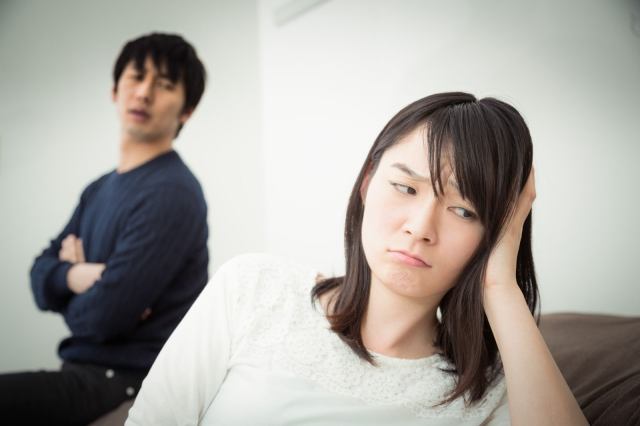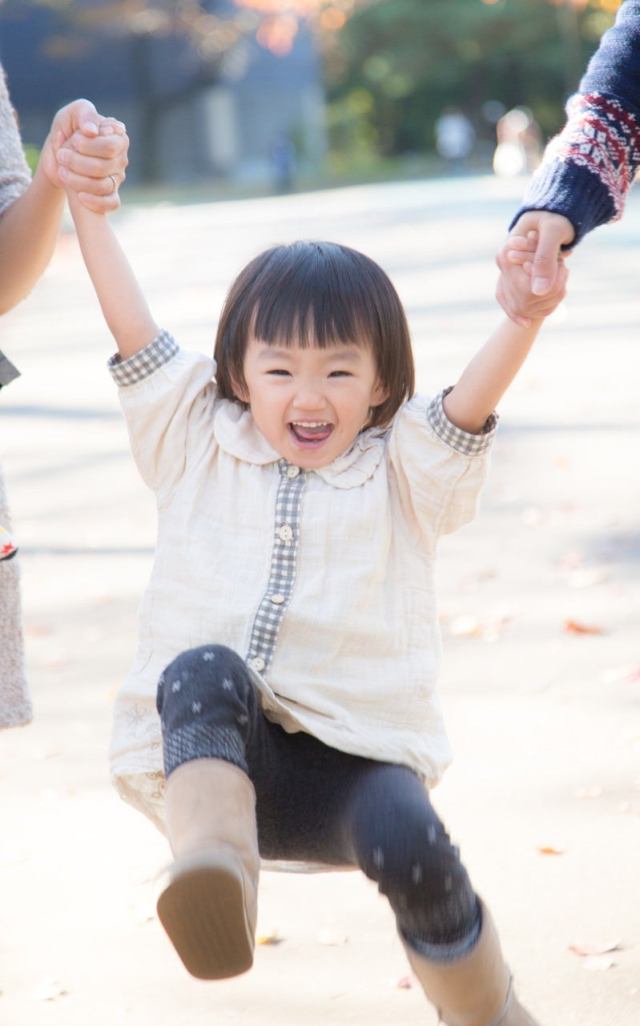
An upcoming legal change will finally allow divorcing couples to seek joint custody of their children in Japan and opinions are mixed.
In May, it was decided that Japan will introduce the right to joint parental custody by the year 2026 as an option in the case of divorce. This reform marks a huge legal shift after 77 years of a sole parental custody system following divorce in the country, and was spurred on by several factors which include:
● Encouraging both parents to take responsibility for child-rearing expenses through joint custody, which addresses an ongoing issue of single-parent households not being able to receive adequate child support payments.
● Increasing the face-to-face interactions of children and their parents through visitation rights, which is thought to be beneficial for both sides.
● Conforming to international standards, where joint custody tends to be the norm, though the details vary from country to country. Also, in accordance with the Hague Convention on Protection of Children and Co-operation in Respect of Intercountry Adoption, a joint custody system can help prevent child abduction cases with the dissolution of international marriages.
▼ The question facing divorcing parents in Japan soon: Should we seek joint custody, or should one of us have sole custody of the kids?
Of course, the reform does not come without concerns from lawmakers. Namely, opponents of the change worry that there will be an increased risk of continued domestic violence or child abuse in cases of divorce due to these factors. Others have cited an increased burden on both children and the courts if there is a rise in the number of lawsuits regarding enforcement of joint custody situations. What is clear is that in order for joint custody to be as effective as possible in Japan, the government will have to strengthen its countermeasures against child abuse and create additional support systems to ensure smooth parental visits and payment of child support.
So what does the general public think of the upcoming right for joint parental custody? Data collection firm Navit conducted an internet survey in July among 1,000 Japanese male and female participants in their 20s-80s on differing attitudes. The major survey questions and takeaways are detailed below.
Q1: Are you aware of the right to joint custody, in which both parents have shared parental rights even after divorce?
With 73.3 percent of respondents stating that they were aware and only 26.7 percent stating that they were not aware of a joint custody system, the majority of people seem to be familiar with its existence in some places of the world as a potential option.
Q2: Did you know that joint custody will be implemented in Japan by 2026?
This time, with only 47.2 percent stating that they knew of the upcoming legal change and 52.8 percent stating that they did not know, it seems that the general population could benefit from a public awareness campaign in the near future.
▼ A campaign which would hopefully feature the smiles of many cute children
Q3: Do you support or oppose joint custody?
The responses to this question were more mixed, with the highest proportion of respondents stating that they neither support nor oppose joint custody at 43.6 percent. The next biggest group were those who support it at 30.4 percent, followed by those who lean on the side of supporting it if they had to choose at 15.1 percent. The two smallest groups were those who lean on the side of opposing it if they had to choose at 6.7 percent, and finally, those who oppose it at 4.2 percent.
With the the biggest group displaying ambivalence towards the concept of joint custody, perhaps more educational programming is needed alongside awareness to also teach the public about both the potential pros and cons of this kind of system.
Q4: What do you think of joint custody?
This final question was fairly open-ended with multiple responses, but the three largest kinds by far can be summarized by the following statements:
● “I think it’s good because children can receive the love of both parents” (26.4 percent)
● “I don’t think it’s good because it has the possibility of making it harder for children to escape domestic violence or child abuse” (18.7 percent)
● “I think it’s good because it will decrease fighting over parental rights” (13.0 percent)
The reform also seems to be part of a growing trend in legal changes to support the various needs of Japanese families with children. Ultimately, it appears that there is still a long way to go in order to successfully adapt a system of joint parental custody as an option after divorce into the unique cultural context and legal framework of Japan.
Source: PR Times
Top image: PR Times
Insert images: Pakutaso (1, 2)
● Want to hear about SoraNews24’s latest articles as soon as they’re published? Follow us on Facebook and Twitter!



 Awareness campaign warns foreigners in Japan of “Divorce without Consent”
Awareness campaign warns foreigners in Japan of “Divorce without Consent” Should married couples in Japan be allowed to have different family names? Survey investigates
Should married couples in Japan be allowed to have different family names? Survey investigates Japan may finally abolish law that bans women only from remarrying soon after divorce
Japan may finally abolish law that bans women only from remarrying soon after divorce Most of Japan’s new adults hope to fall in love and get married, according to recent survey
Most of Japan’s new adults hope to fall in love and get married, according to recent survey Foreign men share their reasons for divorcing their Japanese wives
Foreign men share their reasons for divorcing their Japanese wives Japanese restaurant chain serves Dragon Ball donuts and Senzu Beans this spring
Japanese restaurant chain serves Dragon Ball donuts and Senzu Beans this spring Starbucks Japan releases new sakura goods and drinkware for cherry blossom season 2026
Starbucks Japan releases new sakura goods and drinkware for cherry blossom season 2026 Starbucks Japan releases first-ever Hinamatsuri Girls’ Day Frappuccino
Starbucks Japan releases first-ever Hinamatsuri Girls’ Day Frappuccino Japan’s first-ever capybara cat cafe opens in Tokyo
Japan’s first-ever capybara cat cafe opens in Tokyo Details of the Pokémon/Van Gogh art museum crossover are just as adorable as we’d hoped【Pics】
Details of the Pokémon/Van Gogh art museum crossover are just as adorable as we’d hoped【Pics】 Is a weekend trip to Korea possible with just 50,000 yen (US$350)? – Part 1【Extreme budget travel】
Is a weekend trip to Korea possible with just 50,000 yen (US$350)? – Part 1【Extreme budget travel】 Can we be just like Shohei Ohtani on a budget with a Hello Kitty cap?
Can we be just like Shohei Ohtani on a budget with a Hello Kitty cap? Tokyo street sweets: The must-snack treats of Nakano’s Refutei
Tokyo street sweets: The must-snack treats of Nakano’s Refutei Ghibli’s Kiki’s Delivery Service returns to theaters with first-ever IMAX screenings and remaster
Ghibli’s Kiki’s Delivery Service returns to theaters with first-ever IMAX screenings and remaster Starbucks Japan unveils new Sakura Frappuccino for cherry blossom season 2025
Starbucks Japan unveils new Sakura Frappuccino for cherry blossom season 2025 Highest Starbucks in Japan set to open this spring in the Tokyo sky
Highest Starbucks in Japan set to open this spring in the Tokyo sky Tokyo Skytree turns pink for the cherry blossom season
Tokyo Skytree turns pink for the cherry blossom season Yakuzen ramen restaurant in Tokyo is very different to a yakuza ramen restaurant
Yakuzen ramen restaurant in Tokyo is very different to a yakuza ramen restaurant Japan Extreme Budget Travel! A trip from Tokyo to Izumo for just 30,000 yen [Part 1]
Japan Extreme Budget Travel! A trip from Tokyo to Izumo for just 30,000 yen [Part 1] Japan has only one airport named after a samurai, so let’s check out Kochi Ryoma【Photos】
Japan has only one airport named after a samurai, so let’s check out Kochi Ryoma【Photos】 Japanese drugstore sells onigiri at pre-stupid era prices, but how do they compare to 7-Eleven?
Japanese drugstore sells onigiri at pre-stupid era prices, but how do they compare to 7-Eleven? Burning through cash just to throw things away tops list of headaches when moving house in Japan
Burning through cash just to throw things away tops list of headaches when moving house in Japan Japan’s newest Shinkansen has no seats…or passengers [Video]
Japan’s newest Shinkansen has no seats…or passengers [Video] Foreigners accounting for over 80 percent of off-course skiers needing rescue in Japan’s Hokkaido
Foreigners accounting for over 80 percent of off-course skiers needing rescue in Japan’s Hokkaido Super-salty pizza sends six kids to the hospital in Japan, linguistics blamed
Super-salty pizza sends six kids to the hospital in Japan, linguistics blamed Starbucks Japan unveils new sakura Frappuccino for cherry blossom season 2026
Starbucks Japan unveils new sakura Frappuccino for cherry blossom season 2026 Foreign tourists in Japan will get free Shinkansen tickets to promote regional tourism
Foreign tourists in Japan will get free Shinkansen tickets to promote regional tourism The 10 most annoying things foreign tourists do on Japanese trains, according to locals
The 10 most annoying things foreign tourists do on Japanese trains, according to locals Take a trip to Japan’s Dododo Land, the most irritating place on Earth
Take a trip to Japan’s Dododo Land, the most irritating place on Earth Naruto and Converse team up for new line of shinobi sneakers[Photos]
Naruto and Converse team up for new line of shinobi sneakers[Photos] Is China’s don’t-go-to-Japan warning affecting the lines at a popular Tokyo gyukatsu restaurant?
Is China’s don’t-go-to-Japan warning affecting the lines at a popular Tokyo gyukatsu restaurant? Survey asks foreign tourists what bothered them in Japan, more than half gave same answer
Survey asks foreign tourists what bothered them in Japan, more than half gave same answer Japan’s human washing machines will go on sale to general public, demos to be held in Tokyo
Japan’s human washing machines will go on sale to general public, demos to be held in Tokyo Starbucks Japan releases new drinkware and goods for Valentine’s Day
Starbucks Japan releases new drinkware and goods for Valentine’s Day We deeply regret going into this tunnel on our walk in the mountains of Japan
We deeply regret going into this tunnel on our walk in the mountains of Japan Studio Ghibli releases Kodama forest spirits from Princess Mononoke to light up your home
Studio Ghibli releases Kodama forest spirits from Princess Mononoke to light up your home Major Japanese hotel chain says reservations via overseas booking sites may not be valid
Major Japanese hotel chain says reservations via overseas booking sites may not be valid Put sesame oil in your coffee? Japanese maker says it’s the best way to start your day【Taste test】
Put sesame oil in your coffee? Japanese maker says it’s the best way to start your day【Taste test】 No more using real katana for tourism activities, Japan’s National Police Agency says
No more using real katana for tourism activities, Japan’s National Police Agency says Lots of Japanese parents want their kids to work for Nintendo, but not just for the money, survey says
Lots of Japanese parents want their kids to work for Nintendo, but not just for the money, survey says Survey reveals 70 percent of Japanese adults believe corporal punishment is necessary
Survey reveals 70 percent of Japanese adults believe corporal punishment is necessary Japan’s legal age of adulthood dropping by two years, but do teens understand what that means?
Japan’s legal age of adulthood dropping by two years, but do teens understand what that means? Disgruntled Japanese men share a list of common male woes before and after marriage
Disgruntled Japanese men share a list of common male woes before and after marriage 5 powerful reasons to be a woman in Japan 【Women in Japan Series】
5 powerful reasons to be a woman in Japan 【Women in Japan Series】 What do Japanese kids spend their allowance on? Survey finds out
What do Japanese kids spend their allowance on? Survey finds out More than one in three Japanese working women in survey would rather be housewives
More than one in three Japanese working women in survey would rather be housewives Large majority of otaku in Japan want to keep being otaku after having kids, survey says
Large majority of otaku in Japan want to keep being otaku after having kids, survey says Survey finds more than 70 percent of Japanese children have an online friend
Survey finds more than 70 percent of Japanese children have an online friend Osaka governor suggests lowering voting age to 0 to curb population decline
Osaka governor suggests lowering voting age to 0 to curb population decline Almost half of Japanese grade-school girls say they’ve never heard of “programming” in survey
Almost half of Japanese grade-school girls say they’ve never heard of “programming” in survey What’s the best way to close the gender gap in Japan? Japanese women weigh in
What’s the best way to close the gender gap in Japan? Japanese women weigh in